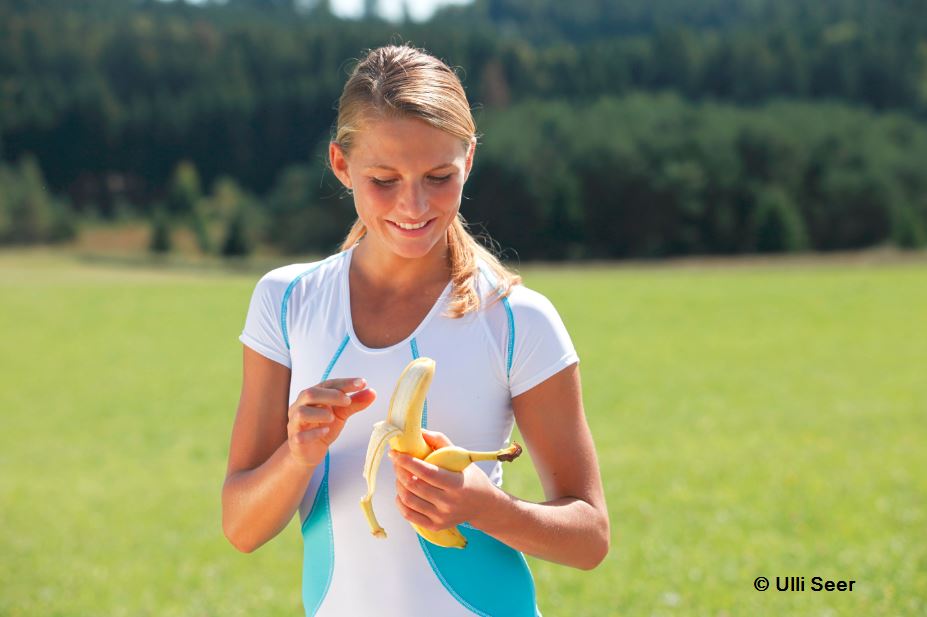Your diet has a significant impact on your performance. It’s important for everyone to eat a good balance of carbohydrates, protein and fats, and athletes should make sure that every meal contains a protein source.
Extra special attention should be paid to your diet immediately before, during and after a competition or an intense workout. With the right supply of nutrients, you’ll be ready for your best effort:
- Energy Source: Carbohydrates provide energy for your muscles so you’re able to sustain your effort throughout a workout. The body can metabolize carbohydrates fastest, but fats are also used for energy. They’re stored in your body and used at a slower rate, however, they last longer.
- Minerals: Your body loses minerals through sweat and the metabolic processes going on in your body. Sodium is one of the most important minerals that needs replenishing after the stresses of training or competition. After these efforts, the other minerals that are crucial to your recovery are potassium, magnesium, zinc and selenium.
- Recovery: To replenish the depleted energy stores, carbohydrates are needed. Proteins are also very important in order to stabilize your immune system and support muscle repair and regeneration.
Dietary supplements such as gels, sports drinks, bars, or other amino acid delivering products and protein shakes are perfectly matched to the needs of athletes. They have the right composition and are rapidly absorbed into your body. In preparing for half marathons and marathons, you should train with these types of products. Experiment during training to see what works best for you. Most of us ‘non-elite’athletes are subject to the on-course nutrition provided by the race organizers. Try to find out ahead of time what these products are and train with them. That way there will be no surprises come race day.

These foods can also be beneficial for training when taken during the following times:
Before training (120 to 30 minutes before):
- Ripe Banana
- Mineral water with a pinch of salt (NaCl)
- A handful of trail mix
- Bread or roll with honey
During training (from 60 minutes to 120 minutes):
- Dried fruit (if your stomach can tolerate it)
- Water with salt and dextrose (important: note the concentration!)
- Granola bars
After training (best within the first 30 minutes):
- Rice pudding with cinnamon
- Spelt with applesauce and raisins
- Banana smoothie (1 banana with 150 ml of milk (soy or rice milk is great too!), vanilla or chocolate protein powder and 1 handful of oats)
- A handful of pretzel sticks
- Non-alcoholic wheat beer
- 200 ml of grape juice with 400-600 ml of mineral water

During ‘light’workouts of less than one hour you should refrain from carbohydrate supplements and focus more on proteins. This is especially true after a workout. This helps promote the growth of mitochondria (the powerhouses of the cell). Test different products during training and try to keep a log of what you eat and when you eat it to try to determine what works best for your individual needs.
This blog was written by Inga Lena Heuck, a sports scientist and German Champion (2010) in the half marathon.
